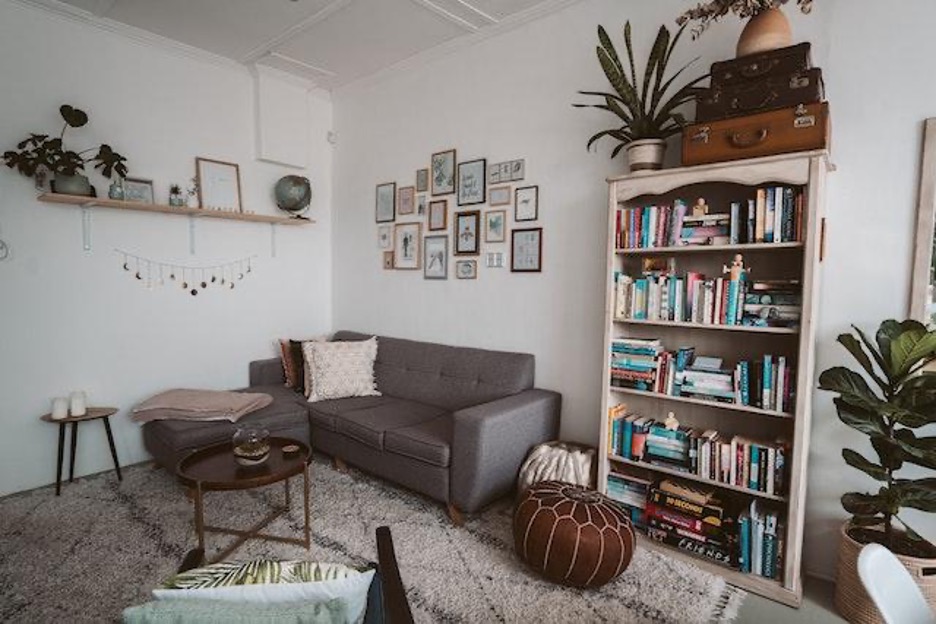

When sharing an apartment with roommates, there are plenty of things that can spark miscommunication and disagreements. Unfortunately, it is just bound to happen when sharing close living quarters. However, one thing you can do to set yourself and your roommates up for success is establish rules early on in your time together in order to prevent future conflict. One thing you should consider is setting guidelines around your apartment’s common spaces.
Keep reading for apartment common space rules to set.

The space’s function
Everyone may have a different idea of what they want as a common space. Some may think that the living room will automatically become a place for roommate gatherings, guests, and more of an entertainment hub in the apartment. Others may think of a living room as an extension of their bedroom, where they can double up on storage or place their desk in the living room to complete their schoolwork. Whatever the case may be, make sure you and your roommates are on the same page when it comes to how you want to utilize your common spaces.
You don’t want to have larger gatherings in your living room while one roommate is trying to finish a last-minute assignment after placing their desk setup in the living room.
Shared storage – does everyone get an even portion of the common storage space?
Similarly, common spaces also offer more space for everyone’s belongings to be stored. Depending on how much space your apartment offers, figuring out how everyone’s belongings are going to be stored can be easy, or require more strategy. For example, your apartment may have hallway storage in the form of a closet or cabinets. While your first thought may be that everyone has equal rights to the space, you may also want to consider everyone’s individual rooms. One roommate may have a smaller bedroom with less storage space, while another has the master bedroom with a walk-in closet. In this case, you can consider giving the roommate with a smaller bedroom a larger portion of shared storage space. If someone has less space to store in the hallway cabinet, you can offer them extra space in the living room or bathroom to store their other belongings. Be ready to compromise in order to prevent conflict.
Decorating – who gets the final say?
When it comes to sharing an apartment, a common conflict may be how you are going to decorate the apartment. If you are lucky, you can share the same taste in decor as your roommates and this will never be the issue. However, you may find that the style you want to use for your living room is something your roommate wants nothing to do with.
If you find yourself conflicting with your roommate(s) about how you are decorating common areas, keep it simple. You can either opt to keep decor to an absolute minimum if you can’t find common ground. Or, you can share the decorating rights – one roommate can add a touch of decor, then the next roommate adds their own touch, and so on.
Sure, the end result may be a bit more eclectic, but everyone will get the chance to have their individuality represented in the common space.
Follow a cleaning schedule
One major issue with common spaces in apartments is that mess can easily build up as roommates use the space on a daily basis. From preparing food in the kitchen to spending an evening in the living room, everyone’s minor messes – no matter how small – can lead to a messy common space. This can lead to plenty of frustration between roommates and lead to conflict as roommates don’t want to clean up after someone else’s mess and areas can be left messy when another roommate wants to use them.
To prevent this, establish expectations about how each roommate should take care of the space. Is there a certain amount of time that roommates can leave dishes/food out in the kitchen after prep? If roommates leave their belongings in the living room, is there an expectation of when they are expected to clean the belongings out of the living room?
As far as deep cleaning is concerned, set a schedule for routine cleaning of the common spaces. If you are living with two other roommates, you can each get a shared space (kitchen, living room, and bathroom) and switch off deep cleaning a certain room every week.
Prior to deep cleaning, make sure roommates are picking up small messes so that the person cleaning isn’t cleaning up more than necessary.
Living with roommates is not always going to be an easygoing, simple experience, but if you take the time to discuss rules and expectations around your apartment you can help your roommates and yourself prevent future conflict. Good luck!



 Equal Housing Opportunity
Equal Housing Opportunity

